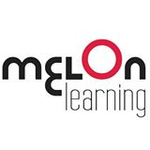Description

Easygenerator

Melon LMS

Trainual
Comprehensive Overview: Easygenerator vs Melon LMS vs Trainual
Here's a comprehensive overview of Easygenerator, Melon LMS, and Trainual, focusing on their primary functions, target markets, market share, user base, and key differentiators.
Easygenerator
a) Primary Functions and Target Markets:
-
Primary Functions: Easygenerator is a cloud-based e-learning authoring tool designed to help businesses and educational institutions create courses and learning materials quickly. Key features include course templates, text and multimedia content integration, quizzes, collaboration tools, tracking analytics, and multi-language support.
-
Target Markets: Easygenerator is primarily targeted at instructional designers, educators, corporate trainers, and small to medium-sized businesses (SMBs) looking for an easy-to-use and efficient way to design e-learning content. It caters to industries such as education, healthcare, finance, and technology.
b) Market Share and User Base:
- Easygenerator is a well-known player in the e-learning authoring tool space. While it may not have the same level of market dominance as some bigger platforms like Adobe Captivate or Articulate, it is respected for its ease of use and has a growing user base, particularly among SMBs and educational institutions.
c) Key Differentiating Factors:
-
Ease of Use: The platform is known for its user-friendly interface that requires little to no technical expertise, making it accessible to a broad audience.
-
Collaborative Features: Easygenerator offers strong collaboration tools, allowing multiple authors to work on the same project simultaneously.
-
Cost-Effectiveness: It is generally positioned as a cost-effective solution compared to some of the larger enterprise-level tools.
Melon LMS
a) Primary Functions and Target Markets:
-
Primary Functions: Melon LMS is a learning management system designed to support the delivery, tracking, and management of employee training. It offers features such as course management, assessments, reporting, and analytics, as well as integration capabilities with other HR systems.
-
Target Markets: The platform is mostly aimed at corporate organizations, particularly in industries like finance, healthcare, retail, and technology, which require robust training and compliance solutions.
b) Market Share and User Base:
- Melon LMS is a competitive player in the corporate LMS market but is smaller in scale compared to major platforms such as Moodle, Blackboard, or Cornerstone OnDemand. Its user base tends to include a mix of SMBs and mid-sized enterprises.
c) Key Differentiating Factors:
-
Customization: Melon LMS is known for its high level of customizability, making it suitable for organizations with specific needs.
-
User Engagement Tools: It offers several features aimed at enhancing user engagement, such as gamification, social learning components, and mobile accessibility.
-
Customer Support: Users often praise the platform for its responsive and effective customer support service.
Trainual
a) Primary Functions and Target Markets:
-
Primary Functions: Trainual is a knowledge transfer and employee training platform designed to help businesses document processes, policies, and procedures, making onboarding and training more efficient. It includes features like organizational charts, process documentation, searchable content, and assessment tools.
-
Target Markets: Trainual is particularly popular among small businesses and startups looking to streamline their onboarding processes and standard operating procedures. It doesn’t cater to traditional educational institutions but rather focuses on business operations.
b) Market Share and User Base:
- Trainual holds a niche position in the market, particularly appealing to small businesses that need a straightforward, affordable solution to document and train on processes. It has seen a surge in adoption due to the rise of remote work and the need for cohesive training tools.
c) Key Differentiating Factors:
-
Focus on Process Documentation: Unlike traditional LMS platforms, Trainual is heavily focused on documenting business processes and making them easily accessible.
-
Scalability for Small Businesses: While it caters to SMBs, it offers scalability as businesses grow, allowing them to adapt and expand the use of the platform.
-
Intuitive Design: The platform is designed with simplicity in mind, offering a clean and intuitive user interface, making it accessible for users with limited technical expertise.
In summary, Easygenerator focuses on course authoring for varied educational and corporate needs, Melon LMS offers robust training solutions for larger enterprises with customization needs, and Trainual specializes in process documentation and knowledge transfer geared towards small businesses. Each platform has its unique strengths tailored to different segments of the learning and training market.
Contact Info

Year founded :
2013
+31 10 310 7100
Not Available
United Arab Emirates
http://www.linkedin.com/company/easygenerator

Year founded :
Not Available
Not Available
Not Available
Not Available
Not Available

Year founded :
2018
Not Available
Not Available
United States
http://www.linkedin.com/company/trainuals-sadcs2
Feature Similarity Breakdown: Easygenerator, Melon LMS, Trainual
When analyzing Easygenerator, Melon LMS, and Trainual, it's important to look at their core functionalities, user interfaces, and any unique features that differentiate them from one another.
a) Core Features in Common
-
Course Creation and Management:
- Easygenerator: Provides a robust authoring tool that allows for easy course creation with templates and drag-and-drop functionality.
- Melon LMS: Offers course creation tools that enable the development of varied types of learning content.
- Trainual: Allows for the building of step-by-step training manuals and company policies, leveraging templates for ease of use.
-
Content Delivery:
- All three platforms support various content formats, including text, video, and multimedia, to deliver engaging learning experiences.
-
Assessment and Evaluation:
- These products provide tools for creating quizzes or tests to assess learner understanding and progress.
-
Analytics and Reporting:
- Each platform includes features for tracking learner progress and performance, providing insights into user engagement and outcomes.
-
Collaboration and Communication:
- Facilitate communication between learners and instructors through messaging systems or discussion boards.
-
Integration Capabilities:
- Support integration with other tools and platforms, such as HR systems, to streamline learning management processes.
b) User Interface Comparison
-
Easygenerator: Known for its simple, intuitive interface that is user-friendly, making it accessible for users without technical expertise. Its design focuses heavily on the ease of creating and managing content.
-
Melon LMS: Offers a more traditional LMS interface, which might require a brief learning curve. It emphasizes functionality and flexibility, which can appeal to users who need robust LMS features.
-
Trainual: Features a modern and clean interface tailored for ease of navigation and usability, particularly for small to medium-sized businesses. Its design is particularly intuitive for those familiar with digital workflows and modern SaaS products.
c) Unique Features
-
Easygenerator:
- Cloud-Based Authoring: Unique emphasis on a cloud-based authoring tool, allowing for seamless collaboration between multiple content creators.
- Focus on Rapid eLearning: Designed to support the rapid development of eLearning modules.
-
Melon LMS:
- Customizable Learning Paths: Offers unique features for creating highly personalized and adaptive learning paths for users.
- Comprehensive API Support: Extensive API support for integration with varied external systems.
-
Trainual:
- Business Process Documentation: Specializes in documenting business processes and policies, setting it apart as a tool tailored for onboarding and training.
- Emphasis on Company Knowledge Base: Trainual is designed to act as a centralized hub for company knowledge, facilitating easy access for employees.
These platforms share several core features, such as content creation, assessment, and analytics, but they diverge in their core focus areas and user experiences, catering to different types of organizations with varying needs.
Features

Not Available

Not Available

Not Available
Best Fit Use Cases: Easygenerator, Melon LMS, Trainual
When evaluating Easygenerator, Melon LMS, and Trainual, it's essential to understand how each platform serves different educational, training, and business needs. Here's a breakdown of the best fit use cases for these platforms:
a) Easygenerator
-
Types of Businesses or Projects:
- Small to Medium Enterprises (SMEs): Easygenerator is suitable for businesses that need to create e-learning content quickly without extensive resources or a dedicated instructional design team.
- Corporate Training Departments: Organizations looking to empower subject matter experts to create training materials without professional developers.
- Educational Institutions: Schools and universities wanting to expand their online course offerings with interactive content.
-
Use Cases:
- Creating compliance training, onboarding programs, and product knowledge courses.
- Authoring content when speed and ease of use are priorities since the platform doesn’t demand coding expertise.
- Iterative content deployment where updates need to be made frequently.
b) Melon LMS
-
Scenarios for Preferred Use:
- Enterprise-Level Organizations: Companies with a larger employee base seeking a comprehensive LMS with robust reporting and tracking capabilities.
- Training Providers: External training companies that deliver various courses to different clients and need a system to manage enrollments and monitor performance.
- Regulated Industries: Industries such as finance or healthcare, where detailed tracking and compliance reporting are crucial.
-
Use Cases:
- Managing complex training programs that require detailed user tracking and reporting.
- Deploying diverse learning formats including webinars, virtual classrooms, and blended learning environments.
- Centralizing training resources when organizations operate across multiple locations or countries.
c) Trainual
-
When Users Should Consider Trainual:
- Small to Mid-Sized Businesses (SMBs): Companies looking to document and systematize their processes and SOPs (Standard Operating Procedures) in a structured way.
- Startups: Fast-growing startups needing to onboard new employees quickly and consistently while capturing institutional knowledge.
- Franchises and Multi-Location Businesses: Organizations that require standardization of operations across various locations.
-
Use Cases:
- Streamlining onboarding processes by creating easy-to-follow guides for new employees.
- Developing a centralized knowledge base for all company operations, ensuring consistency across teams.
- Facilitating regular updates and easy distribution of new procedures or changes in company policies.
d) Catering to Industry Verticals or Company Sizes:
-
Easygenerator:
- Best for sectors like education, technology, and consultancy where rapid content creation and knowledge sharing are critical. Ideal for smaller teams or departments within larger companies due to its ease of use.
-
Melon LMS:
- Suitable for large enterprises and diverse industries such as healthcare, finance, and manufacturing where detailed compliance and analytics are required. Fits well with companies that have extensive training needs and require robust administrative capabilities.
-
Trainual:
- Geared towards service-based industries, retail, and franchises where process consistency and efficient onboarding are central. Works well for SMBs and companies needing a scalable solution for rapidly sharing operational knowledge.
Each of these platforms serves distinct niches within the realm of training and development, with strengths making them suitable for specific business models and industry requirements.
Pricing

Pricing Not Available

Pricing Not Available

Pricing Not Available
Metrics History
Metrics History
Comparing teamSize across companies
Conclusion & Final Verdict: Easygenerator vs Melon LMS vs Trainual
When evaluating Easygenerator, Melon LMS, and Trainual, it's important to consider various factors such as features, ease of use, customer support, pricing, and scalability. Here's a concluding assessment:
Overall Value
Best Overall Value: Trainual
When considering overall value, Trainual tends to offer the best balance. It’s particularly valuable for small to medium-sized businesses that require robust onboarding and training capabilities with a user-friendly interface. Trainual’s ability to document SOPs and create training modules makes it versatile and scalable as businesses grow.
Pros and Cons
Easygenerator:
- Pros:
- Intuitive interface that is easy to use, even for individuals with limited technical skills.
- Focus on eLearning content creation, offering a diverse set of tools for building engaging courses.
- Strong support for multimedia content, which can be beneficial for dynamic learning experiences.
- Cons:
- May not have the depth of LMS functionalities for comprehensive learning management.
- Pricing can escalate as the number of users increases.
Melon LMS:
- Pros:
- Offers a wide range of LMS features suitable for educational institutions and corporate training.
- Good reporting and analytics capabilities to track learner progress.
- Flexible and supports integration with other tools and platforms.
- Cons:
- Interface may be less intuitive for beginners compared to competitors.
- Potentially higher learning curve for both administrators and learners.
Trainual:
- Pros:
- Very user-friendly with a strong focus on simplifying the documentation and training processes.
- Ideal for standardizing processes and creating a training repository for teams.
- Strong mobile accessibility, making it easy for on-the-go training.
- Cons:
- Might be less focused on eLearning content creation compared to a dedicated tool like Easygenerator.
- Some users may find it lacking in advanced features required for specific educational needs.
Recommendations
For users deciding between these platforms:
-
Determine Your Primary Needs:
- If you primarily need an eLearning content creation tool, Easygenerator is a solid choice.
- For a full-fledged LMS with classic eLearning functionalities, Melon LMS provides robust solutions.
- If the focus is on standardizing company training and onboarding processes with a user-friendly touch, Trainual is recommended.
-
Consider Scalability:
- Evaluate your future needs. Trainual is scalable for businesses expecting growth.
- Melon LMS can adapt well to larger, more diverse user groups, but consider the learning curve.
-
Trial and Evaluation:
- Leverage free trials offered by these platforms to explore each one’s interface and compatibility with your existing systems.
- Ensure that the product's strengths align with your organization’s priorities, whether it's content creation, LMS functionalities, or process documentation and training.
In conclusion, your decision should align with your specific organizational needs, budget, and intended use cases. Each platform has its strengths, and choosing the right one will depend on which factors you prioritize most in your training and development strategy.